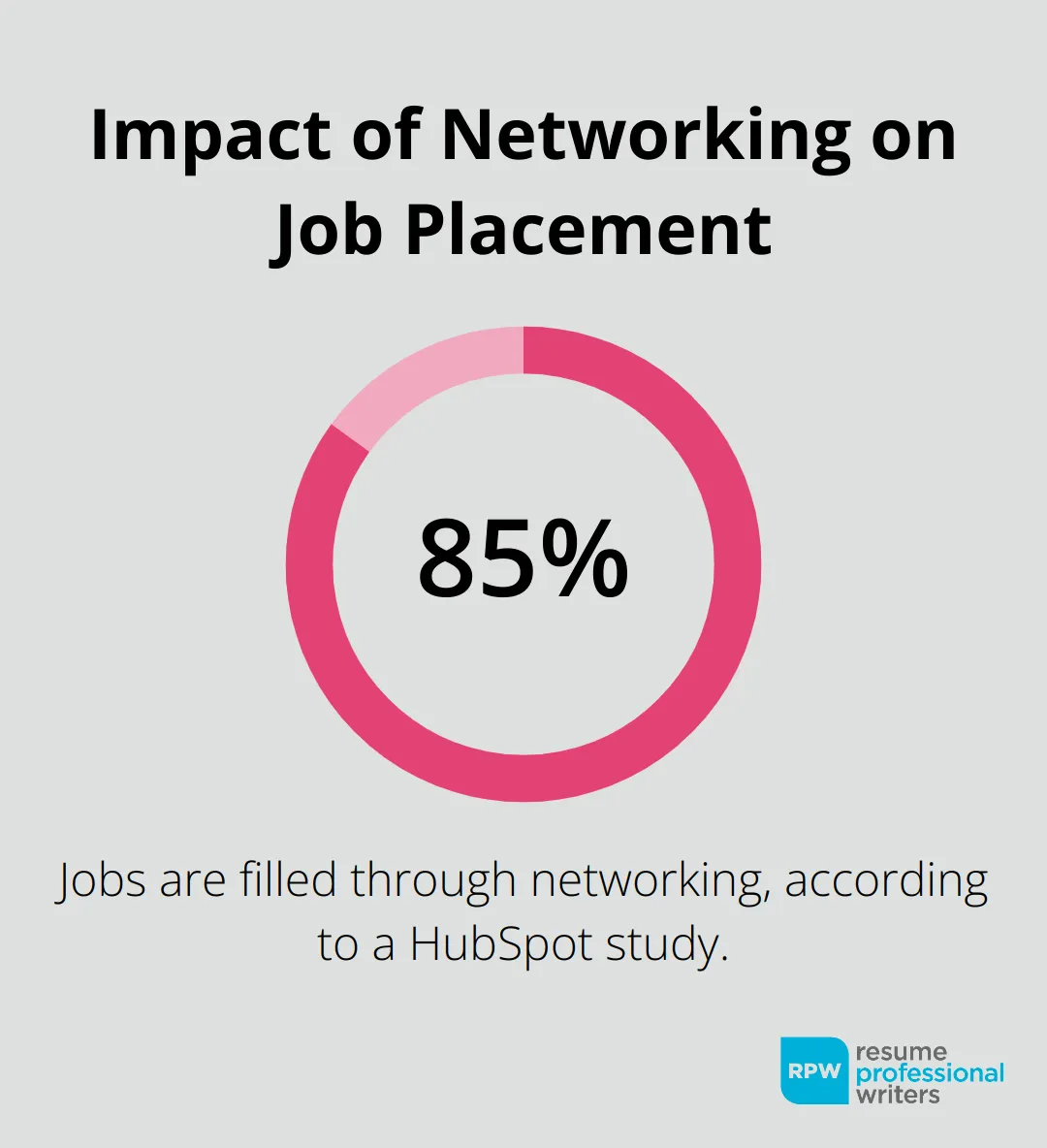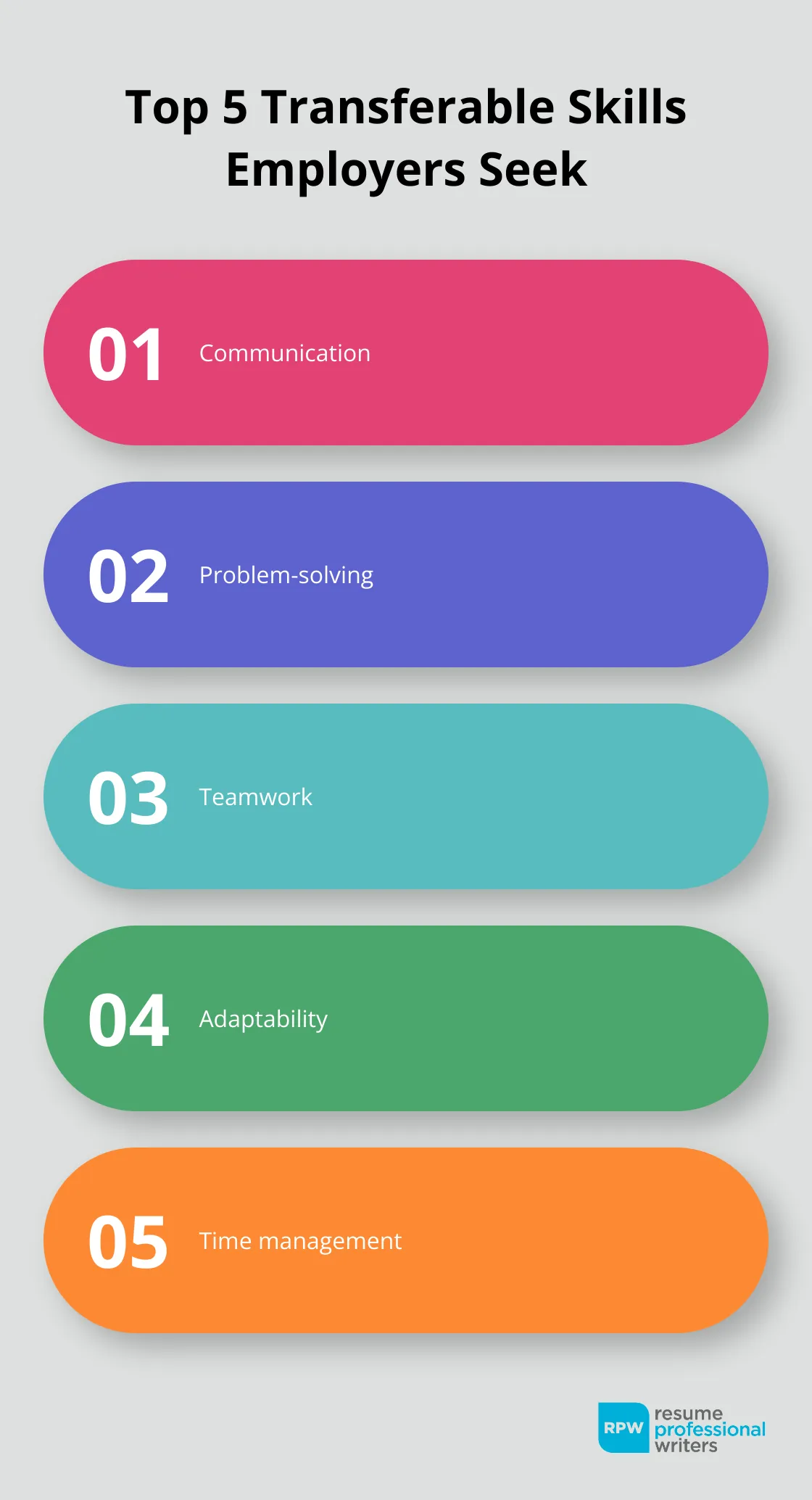To stay ahead in today’s fast-paced job market, it’s not enough to simply work hard—you need to keep learning and growing. Whether it’s mastering new skills, expanding your network, or stepping up as a leader, continuous growth is the key to career success.
In this post, we’ll dive into engaging career development seminar topics that can help you do just that. From networking strategies to leadership tips, these ideas will provide you with valuable insights to help you advance in your career and make a lasting impact in your field.
How to Build a Powerful Professional Network
Networking is an essential part of career growth, offering countless opportunities for connection, collaboration, and advancement. To help you build a network that supports your career goals, here are some effective strategies:
1. Expand Your Circle Beyond Your Comfort Zone
Networking forms the cornerstone of career growth. Identify and attend industry-specific events, conferences, seminars, and workshops regularly. A study by HubSpot reveals that 85% of jobs are filled through networking. Don’t limit yourself to your industry; explore cross-industry gatherings to broaden your perspective and connections.

2. Harness the Power of Social Media
LinkedIn serves as your digital networking powerhouse. Optimize your profile with industry-relevant keywords. Engage with content by commenting and sharing insights. Join industry-specific groups and participate in discussions. A JobVite study found that 87% of recruiters use LinkedIn to vet candidates, making it a crucial platform often discussed in career development seminar topics.
Twitter can be an unexpected networking goldmine. Follow industry leaders and engage in conversations using relevant hashtags. Many professionals have landed job opportunities through Twitter interactions.
3. Perfect Your Elevator Pitch
Craft a concise, compelling introduction that highlights your unique value proposition. Practice it until it feels natural. Your elevator pitch should adapt to different situations (formal networking events or casual coffee meetups).
4. Follow Up and Nurture Relationships
After making a connection, follow up within 24-48 hours. Send a personalized message referencing your conversation. A study by the Journal of Experimental Psychology shows that people who follow up are 58% more likely to be remembered positively.
Set reminders to check in with your contacts periodically. Share articles, congratulate them on achievements, or simply ask how they’re doing. Consistent, genuine interactions build lasting professional relationships.
Networking operates as a two-way street. Always look for ways to provide value to your connections. Offer your expertise, make introductions, or share job opportunities. This approach fosters goodwill and makes people more likely to reciprocate when you need support.
These strategies will help you build a network that not only supports your career growth but also enriches your professional life. Many professionals have leveraged their networks to land dream jobs and accelerate their careers. By exploring key career development seminar topics, you can gain valuable insights to strengthen your network even further. (The next chapter will explore how to navigate career transitions successfully, building on the network you’ve established.)
Mastering Career Transitions
Career changes can excite and intimidate professionals. The Bureau of Labor Statistics reports that the average person changes jobs 12 times during their career. This chapter will guide you through the process of successfully navigating career transitions.
1. Leverage Your Transferable Skills
Identify and highlight your transferable skills when making a career change. These abilities hold value across various industries and roles. A LinkedIn survey reveals the top five transferable skills employers seek: communication, problem-solving, teamwork, adaptability, and time management.

To pinpoint your transferable skills, review your past experiences and achievements. Consider how these skills apply to your desired new role or industry. For example, if you move from sales to project management, your client relationship skills translate into stakeholder management.
2. Research Your Target Industry
Thorough research proves crucial when preparing for a career transition. Start by identifying the key players, trends, and challenges in your target industry. Follow industry publications, attend webinars, and join professional associations to gain insider knowledge.
Informational interviews serve as an invaluable tool for career changers. Reach out to professionals in your target field for 15-30 minute conversations about their work. A Harvard Business Review study found that 80% of job openings never receive advertisement – tapping into your network, which you can expand through career development seminar topics, can uncover these hidden opportunities.
3. Upskill Strategically
Identify any skill gaps between your current expertise and the requirements of your target role. Online learning platforms like Coursera, edX, and LinkedIn Learning offer courses in various fields. The World Economic Forum predicts that 50% of all employees will need reskilling by 2025 due to the adoption of new technologies.
Consider obtaining relevant certifications in your new field. For example, if you transition into project management, a Project Management Professional (PMP) certification can boost your credibility. The Project Management Institute reports that PMP-certified project managers earn 22% more on average than their non-certified peers.
4. Craft Your Career Change Narrative
Develop a compelling story that explains your career transition. This narrative should connect your past experiences with your future goals, demonstrating how your unique background adds value to your new field.
Practice articulating this narrative in networking situations and interviews. A Stanford University study found that stories are up to 22 times more memorable than facts alone. Your career change story can make you stand out among other candidates.
5. Overcome Career Change Challenges
Prepare for potential setbacks during your transition. Rejection and feeling overwhelmed commonly occur. Build resilience by setting realistic expectations and celebrating small wins along the way.
Try a gradual transition if possible. This might involve taking on freelance work or part-time roles in your new field while maintaining your current job. A FreshBooks survey reveals that 24% of traditional workers plan to become self-employed to gain experience in a new field — a strategy often highlighted in career development seminar topics as a smart approach to career shifts.
As you navigate your career transition, developing strong leadership skills becomes essential for advancing in your new role. The next chapter will explore effective strategies for cultivating leadership qualities that drive career success.
How to Develop Leadership Skills for Career Advancement
Leadership shapes how teams perform and how far you can go in your career. Building the right skills takes practice, but it’s within anyone’s reach. Here’s how to develop key leadership traits that will make you stand out.
1. Master Effective Communication
Clear communication forms the foundation of strong leadership. Practice active listening by focusing on the speaker and asking clarifying questions. This technique can reduce workplace misunderstandings by up to 80% (according to a study by Salesforce).
Improve your public speaking skills by joining organizations like Toastmasters International. Regular practice not only boosts your confidence but also hones your ability to articulate ideas clearly. Many Fortune 500 CEOs, including Apple’s Tim Cook, credit Toastmasters for enhancing their leadership communication skills, a crucial component of many career development seminar topics.
2. Cultivate Emotional Intelligence
Emotional intelligence (EQ) is essential for effective leadership. A TalentSmart study found that 90% of top performers have high EQ. Develop self-awareness by regularly reflecting on your emotions and reactions. Practice empathy by actively trying to understand your colleagues’ perspectives.

Use tools like the EQ-i 2.0 assessment to identify areas for improvement. Many organizations, including American Express, have implemented EQ training programs, resulting in significant improvements in employee satisfaction and productivity.
3. Embrace Decision-Making and Problem-Solving
Leaders must make tough decisions and solve complex problems. Enhance your critical thinking skills by analyzing case studies from your industry. Harvard Business Review offers a wealth of real-world business cases that can sharpen your decision-making abilities.
Implement a structured problem-solving approach like the PDCA (Plan-Do-Check-Act) cycle. Toyota’s success is largely attributed to this method, which has helped them maintain their position as a global automotive leader.
4. Lead by Example
Demonstrate the behaviors and work ethic you expect from others. A study by the Center for Creative Leadership found that 66% of employees would follow the example of an admired leader rather than comply with workplace rules.
Take initiative on projects and volunteer for challenging assignments. This proactive approach not only develops your skills but also inspires your team. Google’s “20% time” policy, which allows employees to spend a fifth of their time on passion projects, has led to innovations like Gmail and AdSense—illustrating the power of leadership, a key focus in many career development seminar topics.
5. Build and Empower Teams
Effective leaders create high-performing teams. Practice delegation by assigning tasks based on team members’ strengths. A Gallup study found that teams with managers who focus on strengths are 12.5% more productive.
Foster a culture of trust and open communication. Companies like Zappos have implemented flat organizational structures to promote transparency and collaboration, resulting in higher employee engagement and innovation.
Leadership skills are crucial for career advancement at every stage, not just for managers. By developing these skills, you’ll be better prepared to take on new challenges and opportunities in your professional journey.
Final Thoughts
Career development seminar topics offer valuable opportunities for professional growth and advancement. These topics provide a comprehensive framework for success in today’s dynamic job market, from building powerful networks to mastering career transitions and developing essential leadership skills. The workplace constantly evolves, so professionals must commit to ongoing skill development and knowledge acquisition to stay ahead.
We encourage you to take action on the insights gained from these seminar topics. Start by expanding your professional network, leveraging your transferable skills during career transitions, and cultivating leadership qualities such as effective communication and emotional intelligence. Your career growth is an ongoing process that requires consistent effort and adaptation to navigate the complexities of the modern workplace.

Achieve Your Career Development Goals with Resume Professional Writers
Career development is a continuous journey that demands learning, planning, and the right support. By building strong networks, navigating career transitions, and honing leadership skills, you can thrive in today’s evolving job market. The career development seminar topics we’ve covered offer a strong starting point to drive your growth and long-term success.
To help you put these strategies into action and maximize your potential, Resume Professional Writers is here to support you every step of the way. Our team of expert writers and career specialists offers tailored resume services, LinkedIn profile optimization, and personalized career advice designed to align with your career development goals.
Take the next step toward your professional success—work with our expert resume writing team today!








